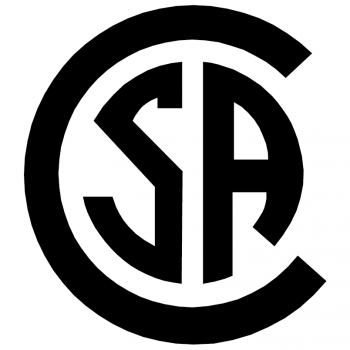
Whether you want to learn to skate or pick up some hockey skills, there is something for everyone to enjoy. Programs run throughout the year. Find out how to register for recreation programs.

A CSA-approved hockey helmet is required to be worn by all participants in all levels of learn to skate, hockey, shinny hockey, figure skate, power skate or goalie programs.
Faceguards are mandatory for participants in
Caregivers who are required to accompany their child(ren) on ice are also required to wear a CSA-approved hockey helmet.
Participants who take part in sledge programs are required to wear a CSA-approved hockey helmet.
These programs introduce new skaters five years of age and younger to basic skating skills. Skaters will build comfort and confidence on the ice through fun activities and games. The 30-minute lesson consists of a warm-up, group lesson, games and free skate.
This program includes:
Participants will be divided into groups according to their skill level for the instructional portion of the lesson.
This program includes:
The Learn to Skate program is designed to guide skaters through a five-level progression of skill that takes them from those first nervous steps on the ice to a striding and gliding confident skater.
Skaters should register for the level recommended by their instructor on their progress report. For skaters entering the Learn to Skate program for the first time, review the skills below to determine the best level that describes the skater’s ability. Classes include a group warm up, instructional lesson and individual free time.
Prerequisite: Participants should be able to stand and walk on skates with straight ankles off the ice.
For those new to skating or who are unable to skate the width of the ice surface with a glide.
This program includes:
Prerequisite (must have one):
This program includes:
Prerequisite: Successful completion or skill ability equal to Learn to Skate 2.
This program includes:
Prerequisite: Successful completion or skill ability equal to Learn to Skate 3.
This program includes:
Prerequisite: Successful completion or skill ability equal to Learn to Skate 4.
This program includes:
The Learn to Skate program for Youth, Adults and Older Adults is divided into Beginner and Advanced lessons. These programs are designed to teach technical skill progression.
Skaters should register for the level recommended by their instructor on their progress report. Review this section to determine the best level for skaters entering the program for the first time.
Prerequisite: none
This program includes:
Prerequisite: Successful completion or skill ability equal to Learn to Skate – Beginner.
This program includes:
Prerequisite: Successful completion or skill ability equal to Learn to Skate 4.
This is not a beginner Learn to Skate program.
This program includes:
Prerequisite (must have one):
The program is designed to prepare participants for entry into house league or recreational/pick-up hockey. It includes an introduction to the basic hockey skills and rules of the game.
Full hockey gear is highly recommended.
Prerequisite: Successful completion or skill ability equal to Learn to Skate Level 4.
Power Skating is the ability to generate as much strength into each stride in the shortest time possible. This is a high-energy instructional conditioning program geared toward hockey skaters.
This program includes:
Prerequisite: None.
This program allows participants to play sledge hockey while developing social skills. Participants are seated in a two-bladed sledge; they use sticks with picks on one end for propulsion and curved blades on the other end for shooting. This program is for all participants with or without disabilities and with little or no experience playing sledge hockey.
Visit Accessible Recreation for more information on adapted recreation programs.
Full hockey gear.
Prerequisite: Successful completion or skill ability equal to Learn to Skate Level 1.
The goalie skills program introduces new goalie players to the basics of goaltending and to the rules of hockey. The program is designed to prepare goalies for entry into house league or recreational/pick-up hockey.
This program includes:
Full goalie equipment.
Participants must bring their own equipment, including helmets and skates.
Proper fitting lace-up single blade skates are required. A guideline for buying skates is to look for skates one size smaller than shoe size. New skates aren’t sharpened and will need sharpening before the first class.
Wear warm comfortable clothing that is easy to move in, like water-resistant pants, non-bulky jackets and warm gloves or mittens.
Items not allowed on the ice:
Visit E-Updates to sign up for our Recreation eNewsletter and receive updates and information about recreation programs, services, and upcoming events in Parks, Forestry and Recreation.